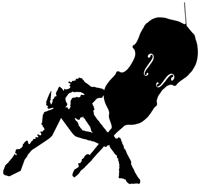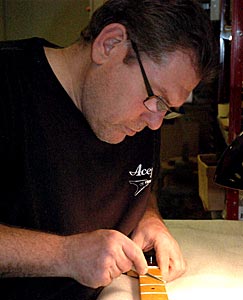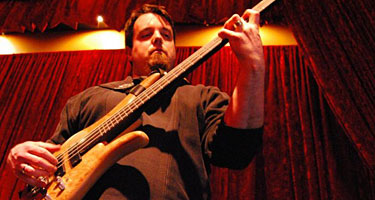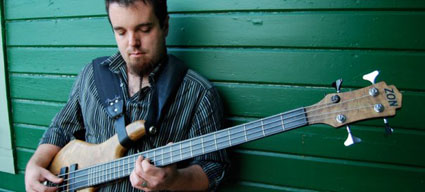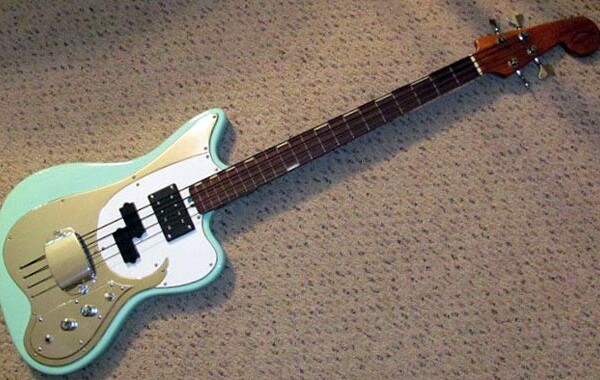Columns: How Tos, Advice & Lessons for Bass Players
Columns - Page 71
Dr. D’s Guide to Improving Your Walking Bass Lines
I regularly see students who are unhappy with their walking bass lines. Perhaps they don’t like how their lines lead (or don’t lead) from chord to chord. Perhaps they find themselves falling into predictable patterns over and over again. Perhaps their range is limited. Perhaps they just don’t find their lines satisfying. All of this can occur even when the...
All Bass, No Treble: When is a Bass Not “Bass”?
Here at No Treble HQ, we watch a ton of bass videos, read a ton of email from bassists, and get all the news releases about everything bass. Our name is obviously an attempt at being clever. No Treble, after all, is another way of saying “All Bass”. We love the instrument, we love bassists, and we love where bass...
Custom Shop: An Interview with Mike Lull
As one of the world’s most respected bass luthiers, Mike Lull’s work has been heard around the world. His Seattle, Washington-based shop has allowed Lull to work on nearly all of the instruments used by bands from the area known as “the grunge capital”, including Nirvana, Soundgarden, Pearl Jam and others. His story began as many do, with youthful rebellion,...
Pay to Play?
Q: Just recently a drummer friend of mine offered me a gig. It’s a little local bar gig, with a fixed payout (around $150 for the night, for the band). My friend suggested we hire a great piano player for the gig, but to get him on this trio, he said we’d have to give him the full payment. I...
Blues Endings: Tips for Avoiding the Train Wreck
Early on in my musical career, a wise man once told me that the mark of a good band is one that starts together and ends together. This doesn’t mean that whatever is played in the middle doesn’t matter, but it alludes to the importance of how well-rehearsed the players are or how well they feel each other out if...
The Best of “Ask Damian Erskine”
Damian Erskine‘s “Ask Damian” column is our longest running here on No Treble, and for good reason. Readers ask great questions (hint: send Damian your questions), readers love reading Damian’s responses, and Damian has a way of breaking things down that makes it all come together. Damian is touring the globe this month, so we’re giving him a break during...
Pacing Your Solos: A Guide to Improvisation
It is not uncommon for students of improvisation to approach their practice without a real plan. They simply start trying to improvise a solo, without really focusing on When, How or What to play, hoping things will simply get better over time. I was certainly guilty of this. It’s one reason I developed my expandable “Tune Treatment” mentioned in an...
Jaco at 60: Remembering the Legend
Sixty years ago today, the world’s greatest bass player was born. Jaco Pastorius didn’t start out that way, following his father’s footsteps and taking up the drums. But as luck would have it, he did eventually pick up a bass guitar, and a few years later, he changed the world of electric bass forever. Jaco Pastorius was my musical idol...
Improving Your Sight Reading: A Guide to Better Reading on the Bandstand
Q: I’m at the point where I’m handling lead sheets better on gigs, but I sometimes get lost and/or second guess myself, usually resulting in me getting lost. Do you have any tips for becoming a good sight reader? A: Reading chord charts, and especially written notation, is one of the most useful tools you will develop as a working...
Let’s Talk About the Blues Scale
The Blues Scale. Why do so many players talk about this as the quintessential soloing tool? Have you ever wondered why the blues scale doesn’t always sound good while being played over a blues progression? Aren’t you looking for something more “realistic” in terms of an approach for soloing? Although this column is starting to sound like an infomercial proposing...
Getting Started with a Looper: A How to Guide
Q: I recently bought a looper after reading some of your columns. It’s for practicing, not for performing, but I’m stumped as to what I should actually do with it. Any thoughts on good (or bad) ways to use a looper for practicing? A: Good for you! Looping pedals are a wonderful tools for practice (or performance)! I’ll share some...
To Mod or Not to Mod: Considerations for Modifying Your Bass
You guys have followed me through a few projects now and, if I?ve done my job, some of you have been inspired to take an instrument and make it fit you better in some way. This month, I want to talk about why we do this and pose some questions you should answer for yourself if you?re considering upgrading or...
